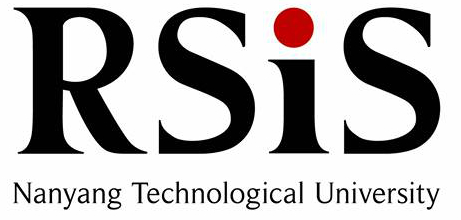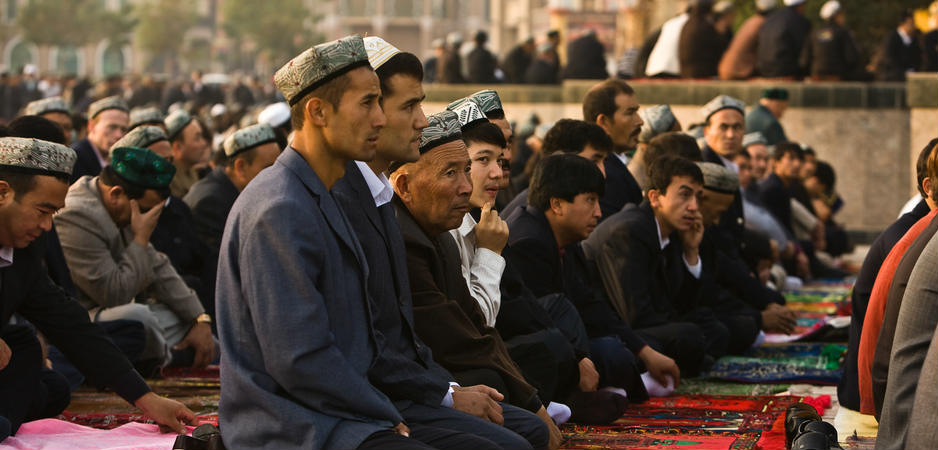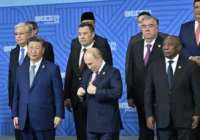Uigher militancy is not just a threat to China’s domestic security; it has become a serious threat to the country’s economic power and interests in Afghanistan, Iraq and Pakistan.
The execution of a Chinese hostage identified as Fan Jinghui, a freelance consultant from Beijing, by the Islamic State (IS) in November 2015 has sent a clear message to the Chinese government of the risks of investing in unstable areas. Although this was the first and so far only known case of deliberate killing of a noncombatant Chinese citizen by jihadist groups in the Middle East, it is unlikely to be the last.
In recent months, Uighur jihadists—who have been trained, armed and sheltered by al-Qaeda, the Taliban and IS in the Af-Pak and Middle East regions—have showed their efforts and intentions to strike at China’s overseas interests. To meet its growing demand for critical energy and mineral resources, China, through its state-owned enterprises, has been investing or promised to invest heavily in a number of conflict-affected countries such as Afghanistan, Pakistan and Iraq. As these countries’ security remains fragile, lacking the capacity to provide sufficient security, Chinese investment projects and citizens are likely to become easy targets for Uighur militants operating in or near these areas.
Uighur Militancy in a New Phase
The ongoing turmoil in Syria and Iraq has been a key factor behind the expansion of Uighur militancy from China and the Afghanistan-Pakistan region to the Middle East. As such, the terrorist threat to Beijing has become transnational and multi-faceted. At present, nearly 1,000 Uighur fighters and their family members from China’s Xinjiang province have joined the Nusra Front—an al-Qaeda affiliate—and the Islamic State in the Middle East.
Afghanistan, on the other hand, remains a traditional battlefield of the Turkistan Islamic Party (TIP), or the East Turkistan Islamic Movement (ETIM), which is the most prominent Uighur group with close links to al-Qaeda and the Taliban. TIP is believed to have approximately 300-500 militants in Afghanistan. There has been no evidence to suggest that IS has any Uighur members in the country.
While the majority of Uighur fighters in the Middle East have joined the TIP’s Syrian branch known as Turkistan Islamic Party in the Levant (TIP-L), a few hundred Uighurs appear to have aligned with IS. TIP-L, as a close ally of the Nusra Front, is now part of Jaish al-Fatah (Army of Conquest), the new coalition of jihadists that has been fighting against the Syrian army in the northern Aleppo and Idlib provinces since March 2015.
Economic Interests under TIP Threat
TIP militants have been strengthened by their experience of fighting against government and coalition forces in Afghanistan and the Middle East. They have gained significant advances in tactics and strategy as a result of their ideological and operational engagement with the Taliban, al-Qaeda and the Nusra Front.
Since its creation in 1997, TIP’s ultimate goal has been the establishment of an independent Islamic state by the name of “East Turkistan” in Xinjiang. Undoubtedly, TIP has perpetrated several acts of violence across China operating from the Af-Pak region. However, currently, such organized entities pose only a limited threat to China’s domestic security because they lack widespread support, and high security measures at borders prevent their entry from overseas.
A dearth of opportunities to fight at home against China seems to make Uighur militants overseas turn to targeting Chinese economic interests in various conflict-ridden areas in which they are operating. In August 2015, a propaganda video issued by TIP featured Uighur militants ambushing vehicles carrying local security personnel of Chinese state-owned copper mine “Mes Aynak” in Afghanistan’s Logar province, close to the capital Kabul.
The Metallurgical Group of China (MCC) has a $3 billion deal with the Afghan government to mine and process copper from Mes Aynak, the largest undeveloped copper field in the world. Given the drawdown of Western forces in Afghanistan, the threat from TIP to any prospective Chinese infrastructure projects in Afghanistan and Pakistan is likely to grow.
Uighur’s Global Jihad Rhetoric
In recent years, TIP’s propaganda has adopted global jihadi rhetoric to publicize the Uighur minority cause and call for violence against China’s global interests. In July 2015, TIP commended al-Shabab, al-Qaeda’s branch in Somalia, when the group’s car bomb attack on a hotel in the capital Mogadishu damaged the Chinese Embassy nearby, killing at least one embassy staff member and injuring three others. Although the strike on the Chinese Embassy appeared to be unintentional, TIP claimed that it was a “practical response to the Chinese aggression” in Xinjiang and encouraged al-Shabab to carry out more of such attacks.
The safety of the growing Chinese investment and workers in Iraq is also under threat. Beijing has heavily invested in Iraq’s petroleum sector. In 2014, Iraq was China’s fifth largest oil exporter. Chinese companies own five oilfields, four of which are located in the southern and one in the central parts of Iraq. Moreover, there are more than 10,000 Chinese workers in Iraq, mostly with Chinese oil companies.
Although Chinese and Iraqi officials expressed their confidence that oilfields in the southern regions are “completely safe,” the possibility of IS, which now controls large swathes of northwest of Iraq, striking major oilfields in the south cannot be ruled out. Uighur fighters who appeared in an IS propaganda video in August 2015 claimed that they are “fully aware of how Uighurs are being oppressed” in China, Thailand and elsewhere, and warned that they will target China wherever possible.
 Need for Better Response
Need for Better Response
The protection of its overseas economic interests is crucial for a rising China. Although Chinese state-owned enterprises and workers based in Afghanistan, Pakistan and Iraq have been protected primarily by local military and police, these countries’ domestic security remain volatile and inadequate.
Given the capacity and intentions of the current transnational network of Uighur militants, the threats to Chinese investment and citizens in these countries are expected to increase. China’s new anti-terrorism law that was enacted on December 27, 2015, has paved the way for Beijing to deploy its military for overseas counterterrorism purposes.
To effectively deal with evolving risks, China now needs to take preemptive measures and recalibrate its responses within the framework of its longstanding noninterference foreign policy. In the long-run, there is a need to develop comprehensive counter-radicalization and community engagement strategies, relying less on hard power and more on winning “hearts and minds” of its Uighur minority community in Xinjiang.
*[This article was originally published by the S. Rajaratnam School of International Studies, a partner institution of Fair Observer.]
The views expressed in this article are the author’s own and do not necessarily reflect Fair Observer’s editorial policy.
Photo Credit: Pete Niesen / Shutterstock.com
 We bring you perspectives from around the world. Help us to inform and educate. Your donation is tax-deductible. Join over 400 people to become a donor or you could choose to be a sponsor.
We bring you perspectives from around the world. Help us to inform and educate. Your donation is tax-deductible. Join over 400 people to become a donor or you could choose to be a sponsor.
Support Fair Observer
We rely on your support for our independence, diversity and quality.
For more than 10 years, Fair Observer has been free, fair and independent. No billionaire owns us, no advertisers control us. We are a reader-supported nonprofit. Unlike many other publications, we keep our content free for readers regardless of where they live or whether they can afford to pay. We have no paywalls and no ads.
In the post-truth era of fake news, echo chambers and filter bubbles, we publish a plurality of perspectives from around the world. Anyone can publish with us, but everyone goes through a rigorous editorial process. So, you get fact-checked, well-reasoned content instead of noise.
We publish 2,500+ voices from 90+ countries. We also conduct education and training programs
on subjects ranging from digital media and journalism to writing and critical thinking. This
doesn’t come cheap. Servers, editors, trainers and web developers cost
money.
Please consider supporting us on a regular basis as a recurring donor or a
sustaining member.
Will you support FO’s journalism?
We rely on your support for our independence, diversity and quality.







